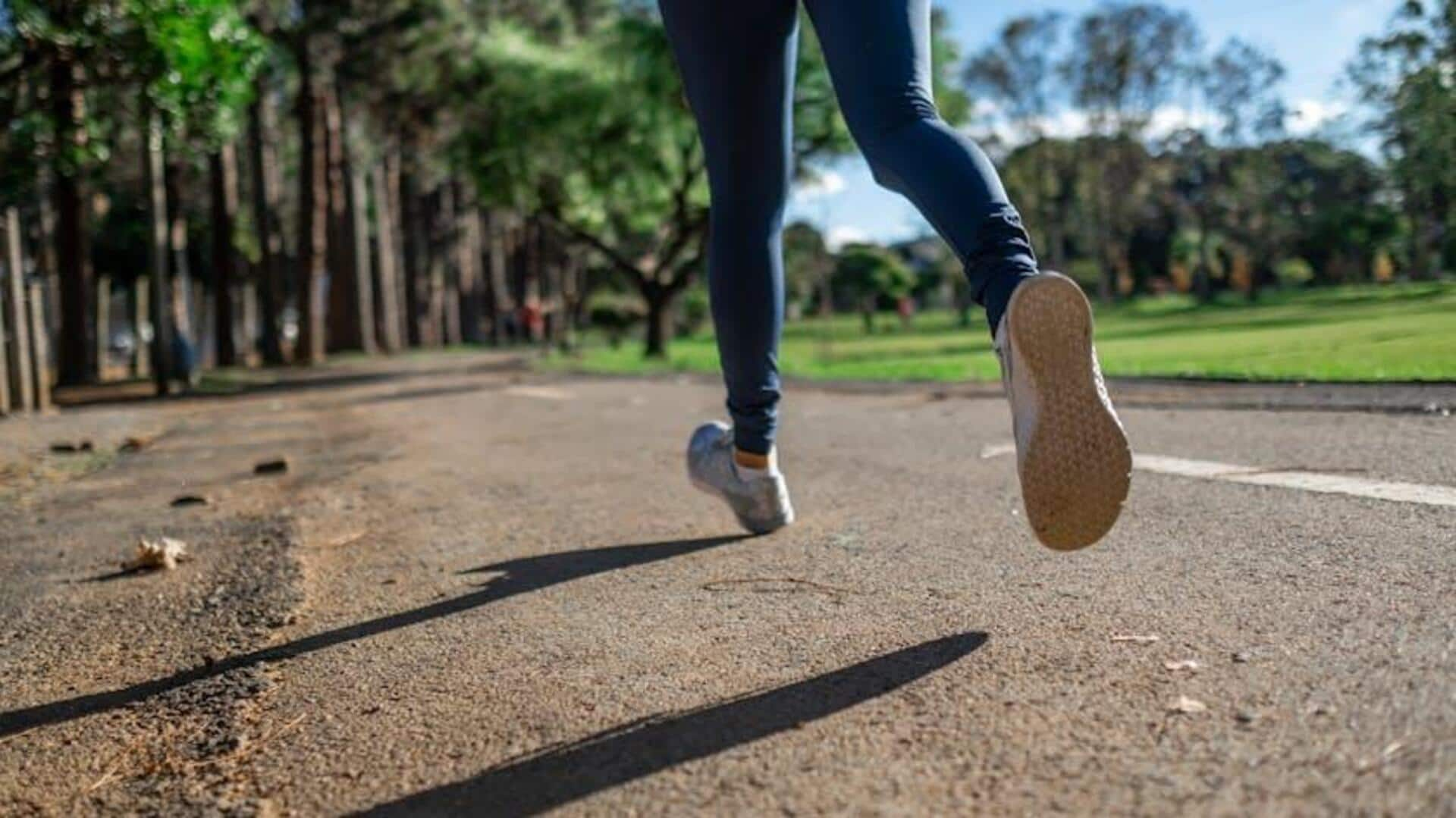
Jogging for beginners: How to avoid injuries
What's the story
Jogging is an ideal way to boost your fitness and stay healthy. However, as a beginner, you are always at the risk of injuries owing to improper techniques or lack of preparation. Knowing how to jog safely can help you avoid these issues and make jogging a fun activity. Here are some practical tips for beginners to avoid injuries while jogging, for a healthier, sustainable routine.
Preparation
Start with proper warm-up
Warming up before jogging is essential to avoid injuries. A proper warm-up increases blood flow to muscles, improves flexibility, and gets the body ready for physical activity. Spend five to 10 minutes doing dynamic stretches such as leg swings or arm circles. This reduces muscle stiffness and lowers the risk of strains or sprains during your jog.
Equipment
Choose the right footwear
Selecting appropriate footwear is crucial for preventing injuries while jogging. Shoes must provide enough support, cushioning, and fit well with your foot shape. Head to a specialty store where experts can recommend shoes depending on your foot type and running style. Investing in good quality shoes can tremendously cut down stress on joints and lessen the likelihood of developing blisters or any other foot-related issues.
Progression
Gradually increase distance
Beginners should avoid increasing their jogging distance too quickly. This may lead to overuse injuries like shin splints or tendonitis. Start with short distances that feel comfortable, and then gradually increase by 10% each week as your endurance improves. Listening to your body's signals is important; if you experience pain or discomfort, take it as a sign to rest or slow down.
Technique
Maintain proper form
Maintaining correct form while jogging prevents unnecessary strain on muscles and joints. Keep your head up, shoulders relaxed and arms at a ninety-degree angle swinging naturally by your sides. Your feet should land softly under your hips (instead of ahead of you) which reduces impact forces on knees and ankles.
Hydration
Stay hydrated
Proper hydration is important while performing physical activities like jogging. It regulates body temperature and lubricates joints, lowering injury risks due to dehydration. These risks include cramps or dizziness during exercise sessions, particularly in hot weather. In such conditions, fluid loss through sweat increases significantly. So, ensure you drink enough water before, during, and after your workouts. This depends upon intensity, duration, and environmental factors involved.